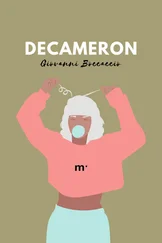“Oh.” I looked out the window. One of the hobos was being clubbed by the yardman. I turned away. “I’ll have to talk it over with my husband.”
“Your husband? You’re pulling my leg.”
I shook my head. “I’d really like to speak with him about this. He may not like it.”
Mr. Gaither exhaled rather noisily. He ran his hand over his mouth with some exasperation and a little bit of pity, as if I were too stupid to see that talking his proposition over with Hank was something that only an imbecilic woman would do.
“And if he doesn’t like it, where does that put things? You’re out of a job and you could be out of a marriage. Do you want that, Miss Hellmann?”
“ Mrs . Hellmann, Mr. Gaither. And I will consider your proposal. I will. But I really have to speak with Hank about it. It is only right. We took vows. I don’t want to break my vows to him without his permission.”
Mr. Gaither shook his head. He wore a grimace that said that he was more than a little put out with me. I think the look also said that he didn’t believe I was going to speak to Hank. I was bluffing, testing him. And if this were true, if he called my bluff — well, where was the risk in having ever asked such an audacious thing of me? Whom otherwise would I tell? What person of consequence would believe that he had actually used this awful economic depression to compromise me in such a way? I had no avenue for appeal or redress. So testing him like this could only be a stupid move.
“Ask him if you wish, Miss Hellmann, but if you do, don’t bother to come to work tomorrow. It should not be my desire each time we embrace to be on silent alert for the approaching footsteps of a cuckold with a gun.”
“Hank doesn’t have a gun. He does have a very sharp fishing knife, though. The kind you gut the big fish with.”
Mr. Gaither lost a little of the color in his face.
Hank laughed when I told him this. And I told it all to him in between forkfuls of Mrs. Peterson’s Dutch chocolate cake (did I mention that Monday was my birthday?) and stolen sips of Hank’s milk. I always tell my husband everything. Just as he tells everything to me. We are very open and honest with one another. Which has made the difficulties of the last several months all the harder to bear. Night after night we have lain in bed and discussed the bleak uncertainty of our joint future. Night after night Hank has held me close to him as we have yearned in a single voice for things to get better, for the Depression to end, for Eddie Cantor to sing again to us in our very own living room, and not through the open kitchen window.
“But did you really mean it, Hank? That you would have actually agreed to what that lecherous old man was asking?”
“Well, yes . On practical grounds, of course. Look at the alternative. Me selling apples on a street corner and you taking in laundry.” He added, “And you’re not even very good at laundry.”
I felt like slapping him again. Hank had surprised me. No, it was something stronger than surprise. It was utter stupefaction. Total awe and wonder. To think that he would give me up in such a way, regardless of the guaranteed return. I felt a little sick.
After a long moment, I said, “Well, your answer shouldn’t matter so much at this point. Because I’m fired.”
“Maybe I should call him. Maybe we could work something out.”
The second slap came even harder than the first. I had a little of Mrs. Peterson’s cake on my fingertips and they left parallel streaks of chocolate frosting upon his cheek. I was like Norma Shearer in that other movie — the one she made early in her career — in which she got to do the slapping. It had the most appropriate title you could think of — that is, for a movie in which there is no shortage of face-slapping going on: He Who Gets Slapped . She slapped Lon Chaney, who played a clown.
That was my husband to a T. My Hank. The slappable clown.
But the clown had one final antic to put across before he left the stage. “There’s something I haven’t told you, honey,” he said, keeping his face straight and solemn, though I could feel that there was mischief just below the surface. “Your boss Mr. Gaither called before you got home. I think he started to get nervous about you spilling the beans to me. He said he called to tell you that he’d decided to give you the raise you asked for. No mention of his having thought about firing you, by the way. Seeing that I had lost my job and we needed the dough, the raise was something he was glad to do. Besides, you were a good secretary. Of course, he conveniently left out the real reason.”
“And what was the real reason?” I asked, tenderly wiping the chocolate smudges from my husband’s reddened cheek with my moistened index finger.
“That he didn’t want me to come down to his office and gut him like a fish.”
I leaned back in my chair in a state of joyous awe and wonder. My husband has the most darling smile. He’s the best husband. To think that he’d even kill for me!
They brought the troops over from Fort Myer in trucks, and the ones from Fort Washington, why, they came up the Potomac in a steamer. I suppose that was an improvement over what had happened on July 14. That was the day, you see, that Vice President Curtis got tired of watching all of us unemployed veterans marching back and forth outside his office window on Capitol Hill, and called out the Marines. Curtis’s successor John Nance Garner once called the job of vice president “not worth a bucket of warm spit.” Well, Vice President Curtis, he must’ve felt a little different, because that Kansas Big Chief used the leverage of his office on the fourteenth to summon a whole contingent of Marines all the way from the Navy Yard just to help improve his view of the Capitol Grounds.
They came in streetcars. For true. In full gear, bayonets fixed. And a lot of good they did. Police Chief Glassford was fit to be tied. He called the vice president a “hysterical meddler.” And some of the veterans knew some of the Marines besides and it ended up being like Old Home Week at the U.S. Capitol.
July 28 was different. Nobody was smiling. Tar-paper shacks in all the little rag-and-tin-can villages throughout D.C. were going up in flames. The tanks were rolling and the tear gas grenades were flying. People who didn’t have nothing to do with anything were coughing and tearing up in the eyes and cussing the president and cussing his chief of staff, Douglas MacArthur, who was leading the charge. And I was hightailing it back to Anacostia Flats, where the largest of all the encampments had been set up. (The biggest Hooverville in the country, it was said.) Trying to get myself back by my own cardboard and packing-crate cottage (the one with the egg-carton roof) to snatch up what few belongings I had in the world before the troops put a match to them, the way they was doing over by Camp Glassford.
We gave our camp the name of Camp Marks — named for the commander of the city’s Eleventh Police Precinct, Sidney J. Marks, who was with us from the beginning. See, it was Marks and Glassford who saw us all coming and did right by us — giving us a place to bivouac and finding food for us when the federal government would have turned us all away at gunpoint on Day One. Some of those sons of bitches who said we was all Communists, why, they used the camp name to prove their case. They spelled it Camp Marx. For true.
I came from New Orleans with my colored pal Odell. We been friends since we was kids together in the bayou, me and him. And I only mention he was colored to make a couple of points here: that we both served in Uncle Sam’s army. I was in the Battle of Belleau Wood, where I took shrapnel into my hindquarters, and Odell, not being among them coloreds who got to serve with the French Africans, got hisself put on kitchen and ditch-digging duty until the signing of the Armistice.
Читать дальше












